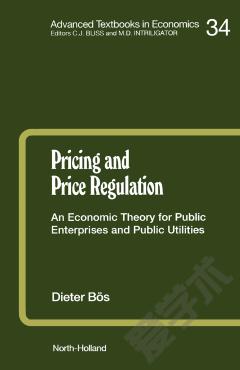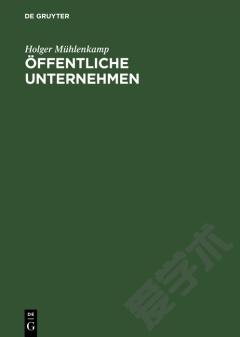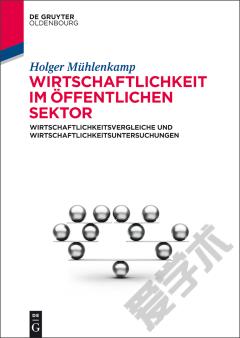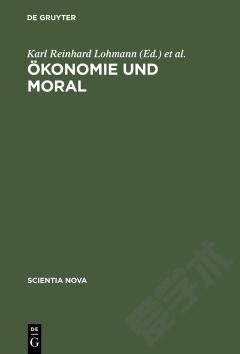Pricing and Price Regulation —— An Economic Theory for Public Enterprises and Public Utilities
----- 定价和价格管制是公共企业和公共事业的经济理论
Part 1 The basic pricing model: special pricing rules - objectives and constraints normative optimum theory positive optimum theory normative piecemeal theory positive piecemeal theory. Part 2 Normative theory - pricing policies for welfare maximisation: A - basic rules - marginal-cost pricing, Ramsey pricing, pricing with distributional aims, adjustment to private monopolistic pricing B - intermediate goods - optimal pricing of publicly supplied intermediate goods C - adjustment to rationed markets - rationed labour market, capacity limits of public transportation D - time-dependent pricing - pricing through time and adjustment clauses, peak-load pricing E - pricing when quality matters - different approaches toward optimal quality. Part 3 Positive theory - pricing policies for political and bureaucratic aims: winning votes minimising price indices maximising budgets maximising output or revenue, saving energy the influence of unions quality in positive-theory models a set of axioms for prices to achieve a fair allocation of costs. Part 4 Price regulation: A - can welfare-optimal prices be achieved by simple rules? - regulating marginal-cost prices, regulating Ramsey prices B - practical regulatory constraints, rate-of-return regulation, price-cap regulation C - the new economics of price regulation - the principal-agent framework, asymmetric information on costs, asymmetric information on demand, soft budget constraints, non-linear pricing, positive theory of price regulation D - regulation through competition - mixed markets.
{{comment.content}}








 京公网安备 11010802027623号
京公网安备 11010802027623号